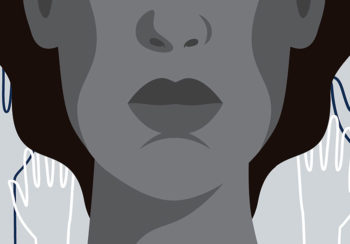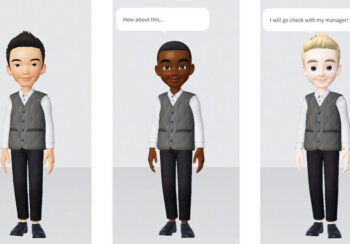Racial discrimination, whether in the form of subtle comments, exclusion, blatant hostility or demeaning stereotypes, affects Black American youths’ development and mental health. But researchers at the University of Georgia’s Center for Family Research (CFR) have found new evidence that the Strong African American Families (SAAF) program can help.
SAAF is a seven-session program for youth ages 10 to 14 years old and their parents or caregivers. The group experience provides family skills training for both the youth and adults by targeting effective parenting behavior, adolescent self-regulation and Black pride.
“We know that social relationships—especially those within families—can help youth manage their responses to stress and traumatic experiences,” said Steve Kogan, lead author of the study and Athletic Association Professor of Human Development in UGA’s College of Family and Consumer Sciences.
While originally designed to prevent drug abuse, researchers in CFR have found that SAAF also offers other benefits. Kogan and colleagues wanted to know if the SAAF program could provide protection against some of the negative psychological outcomes from the experience of racism.
In the current study, 472 youth aged 11 to 12 from rural Georgia, along with their parents, were invited to participate in the SAAF program or to a control group that had no intervention. Youth provided data on their symptoms of depression and experiences of racial discrimination at 10 months, two years and three years after an initial assessment.
For youth in the control group, racial discrimination at age 13 was linked to increased symptoms of depression at age 14 among those not participating in SAAF. For youth who participated in SAAF, no significant effect was found. This held true when controlling for socioeconomic background and the sex of youth. The researchers concluded that the SAAF intervention reduced the incidence of racism-related mental health symptoms among Black adolescents.
“The first priority is to address racism in our society through policy and personal action. It is simply intolerable that Black youth must contend with racial discrimination,” Kogan said. “At the same time, we need to equip families and young people with tools to help them deal with current challenges. We know that families can provide a buffer against stressful and traumatic experiences like racism when they do certain things such as encouraging Black pride in their youth and building a strong parent-child relationship.”
In light of the current study, Kogan says there is accumulating evidence that programs like SAAF can build racial prides and support healthy family relationships that can shield young people from some of the potential consequences of racism in their lives.
Current work at CFR is examining how stressful experiences get “under the skin” of youth. Kogan and other researchers are currently looking into conducting brain imaging studies to learn how stressors like racism, among others, change brain functioning in ways that impact mental and physical health.
“Family-Centered Prevention and Racial Discrimination on Depressive Symptoms Among Early Adolescent Black Americans: A Randomized Clinical Trial” was published in the Journal of the American Medical Association Network Open.






